We publish a lot of articles intended to help anglers increase their success on the water. Sometimes, this is by introducing a new fly pattern, tactic or piece of gear, but most of the time it is simply about being thoughtful while on the water. Regardless of skill level or experience, success on the water is tied most directly to an angler's thoughtfulness. Lessons learned, knowledge gained through experience and tools of the trade can only be employed effectively if an angler is patient and thoughtful in his or her approach.
That may sound like an oversimplification but in reality it is not. Take just a few of the tips we've passed along in the past as examples; in The Where is More Important Than the How, the take home message was how important it is—perhaps above all—to spend time assessing the stream and identifying likely holding spots for trout. In, The Importance of Fly Rig OCD, we discussed the priority that should be placed on frequently stopping to check your rig to make sure that the common mishaps involved with fishing it aren't distorting or destroying its effectiveness. The article Don't Forget to Adjust Your Strike Indicator delves into the consequences that come with slapping on a strike indicator and forgetting about it, one of which is rendering your nymphing setup fairly useless.
None of these tips require hard-to-develop skills that come only from decades with a fly rod in hand, nor do they require intricate studies of trout biology and aquatic ecosystems. Rather, they're based on very simple, rudimentary concepts that are easy to understand but require the angler to take his or her time in assessing the water and their approach to fishing it.
It is important to note that understanding these basic ideas isn't enough, the key is taking the time to recall and leverage them when on the water. You can spend countless hours while off the stream studying every possible aspect of the world of fly fishing, from entomology and trout biology to advanced casting techniques and fly control, but none of it will do you a damned bit of good if it all goes out the window once you step on the water.
I'm certainly not the first person to preach the importance of patience on the stream. Most of us have read how an angler, upon arriving streamside, should spend a minimum of 10 minutes simply observing the stream before casting. I am not compelled to quantify it this way, as I doubt there's a hard and fast rule, and it is unlikely that those who have spread such a message think there is either. The hard and fast rule, however, should be to approach each river or creek, each bend in the stream, each change in sun angle, bug activity, streamflow and so on with a significant measure of thoughtfulness.
More Like This
Not only will your angling improve, your time spent on the stream will likely be more rewarding. Haste to abandon thoughtfulness and judgement is—at least in my case—the result of a rush to produce results (catch fish) in order to reward myself for time spent on the stream. In truth, this is not only a way to reduce your effectiveness as an angler, it is a way to ignore part of the picture that initially drew us to the sport, that of unraveling the puzzle.
If we were simply interested in catching fish, we would all be hanging worms beneath red and white plastic bobbers. But that's never been the case. As fly fishermen and women, we appreciate the intricacies of the puzzle before us and the labor required in solving it. By ignoring the details, and rushing to produce results, we cast aside most of the process from which we derive our reward. In doing so, we not only reduce the bounty we're able to ply from the water, but the enjoyment that comes from doing so.



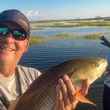
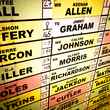




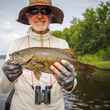
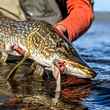



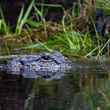




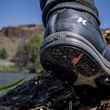
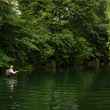
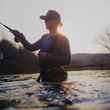
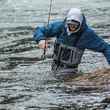


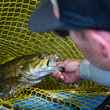
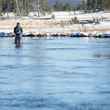
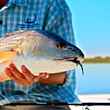
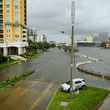


Comments
Mike Sepelak replied on Permalink
This hits home, both when I fish and when I take pictures. In my enthusiasm to get started I rush right in, later think "I should have...". A little patience and forethought go a long, long way.
Chad Shmukler replied on Permalink
Yep. It is crazy, when you think of it, the time we invest in books about fly fishing and reading web sites about fly fishing and talking about fly fishing only to ignore all the things we've learned from doing so once we land stream side.
ME GET FISH
takes over and we revert to bad habits and automatonic behavior in order to do so, even if we're hurting our chances in the process.
(Oh, and I'm not able to verify that "automatonic" behavior is a word. But if it isn't, it should be.)
Fred Rickson replied on Permalink
Bobbers are killing steelhead fishing.
Steelheading used to be about moving along a run covering new water. Then, 20 years ago it was a lawn chair and a side-planer that allowed a person to sit in one place all day occupying the key section of a run (Deschutes). Today, it's some jerk with a bobber and weighted fly who stands in one place for hours dredging the same run. To my knowledge, only Oregon has rules against this newfound lack of courtesy.
Pages